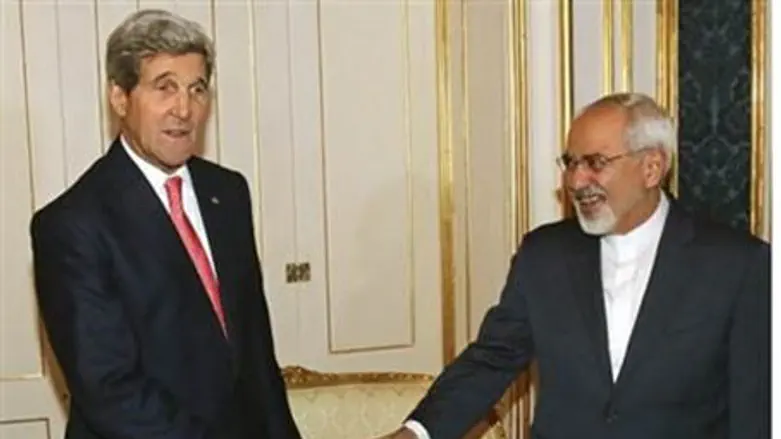
Semi-official Fars news agency in Iran has published an outline of the expected nuclear agreement between Iran and Western powers.
The most notable aspect of the deal is that "all economic, financial and banking sanctions against Iran will be terminated for good on day one after the endorsement of the deal."
Iran currently faces economic pressure from several different sources. The United Nations began sanctioning Iran in 2006, after the International Atomic Energy Agency reported that the Islamic Republic was ignoring restrictions on developing nuclear weapons. The United States then began sanctioning the country in 2011, and the European Union followed the next year.
Most previous reports on the current negotiation suggested that only the UN sanctions would be immediately lifted, while the US and EU sanctions would remain, at least until Iran guarantees its good will.
The Fars report also states that “the upcoming UN Security Council resolution – that will call all the previous five resolutions against Iran null and void - will be the last resolution to be issued on Iran’s nuclear program and [the UN will withdraw] Iran’s nuclear dossier from under Chapter 7 of the UN Charter. This last resolution will remain valid and will be implemented for a specifically limited period of time and will then automatically end at the end of this period.”
While the Fars report did not discuss the deal's restrictions on Iran, a senior US official confirmed that Iran will not open all of its facilities to international inspectors. He explained that if the inspectors believe that Iran is illegally developing nuclear weapons, they will ask permission from the Islamic Republic to inspect suspicious sites.
The described agreement also suggests that the United Nations will not be able to take any action in the event that Iran goes back on its word. Even if the deal does not explicitly forbid the UN from reinstating the sanctions, it is unlikely that such a resolution could be passed in the Security Council in the near future. Russia and China are heavily involved in trade with Iran, and both can veto any Security Council resolution.
Less than a month ago, the United States State Department reported that Iran has not cut back on supporting terrorism despite its assurances during the negotiations. Furthermore, just this past Friday Iran celebrated "al-Quds Day" with its traditional cheers of "Down with America" and "Death to Israel."
Should the myriad sanctions against Iran be immediately lifted and few safeguards remain against its nuclear ambitions other than the regime's word of honor, it is unclear how such a treaty would encourage Iran to become more peaceful. A more likely scenario is that Iran would understand, correctly, that its tactics of supporting terror while lying through diplomatic channels bears fruit.
Instead of bringing peace in our time, the Vienna deal would cause Iran's support of terrorism and violence to skyrocket.